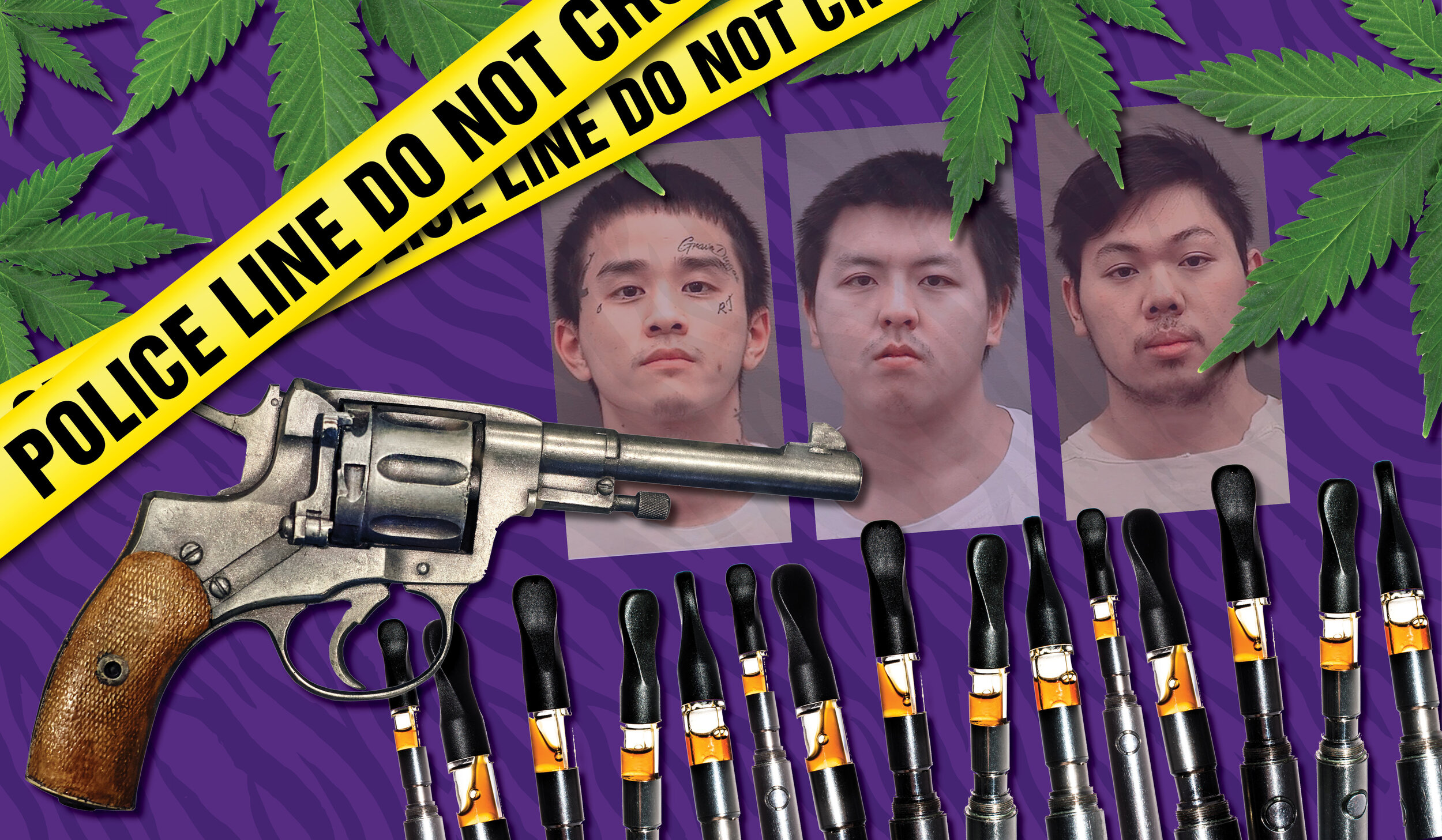In early September 2012, members of the Reccless Tigers, a Virginia weed-dealing gang moving cannabis, vape pens, and edibles from California to Virginia approached a house in a leafy, middle class suburb of Springfield, VA and exacted revenge. One of the residents of a home on Victoria Rd. was supposed to give the Tigers $11,000 in cannabis. The “drug supplier”—as he is identified by court documents—gave the Reccless Tigers grass clippings instead. So on September 3 or so, Tigers members rolled up on his residence and messed up his house. They would return twice two weeks later and vandalize the home.
By February 2019, the Reccless Tigers, whose drug dealing began sometime around 2010, would exact revenge in a far worse way murdering a federal witness named Brandon White, who had seen members of the group commit a robbery. They offered to wipe a $10,000 debt that White, also a drug dealer, owed and $8,000 if he refused to testify (White had already testified in a preliminary hearing in November 2018). When White wouldn’t take the money, the group got him from his grandmother’s house in Falls Church, took him to Richmond, and shot and stabbed him. Among those charged for White’s murder is Reccless Tigers founder, Tony Minh Le. Le through an attorney has denied that he is the Tigers’ founder and leader.
That is all according to the fourth superseding indictment against members of the Reccless Tigers, unsealed on August 21, 2020, which alleges a staggering amount of crimes that included two murders, a number of firebombings, laundering money (as well as placing large sums of it in BitCoin), and dealing in cocaine, ecstasy, heroin, ketamine—but especially cannabis-related products such as vape pens and edibles. Much of the cannabis came from California where the Tigers invested in and operated a cannabis farm of 11,000 plants.
The Reccless Tigers were also seen as something like a lifestyle brand, promoting themselves on social media through Reccless Tigers-related clothing and parties. One member of the Reccless Tigers who is named in this indictment is shown in social media in one image sitting in a bathtub with a Guy Fawkes mask on, holding two guns, surrounded by cash, Hennessy, bottles of lean, and a large tapestry with a tiger on it behind him. The Reccless Tigers have made DMV news for years, including a 2013 arrest in which four alleged members of the gang were charged with possessing 10 pounds of cannabis, cocaine, and ecstasy as well as a number of weapons including an M4 Rifle and an AR-15 and a 2016 event in which they attacked a hip-hop producer at a studio in Falls Church, where then-rising Washington D.C. rapper Goldlink often recorded.
The Reccless Tigers indictment (this is technically, the fourth superseding indictment) is worth noting not only because of its lurid—and sometimes absurd—true crime details but also because it illustrates how even amid cannabis reform across the United States, the criminalization of cannabis continues to facilitate crime. In this case, the Reccless Tigers were growing cannabis and moving cannabis products from California, where cannabis is legalized, to Virginia where cannabis only even became decriminalized this past July. And some details here are red meat for local news. Coverage of the Reccless Tigers indictment noted that they operated a fairly ornate drug dealing operation focused on middle and high schoolers and college students: “The gang became well known throughout secondary schools in Northern Virginia as a source of marijuana, vape pens containing THC, and other drugs, and a large number of the gang’s retail distributors and drug customers were middle school, high school, and college students,” the indictment reads.
Virginia’s recent leaps forward towards medicinal cannabis, decriminalization, and serious conversations about legalization are primarily framed as a racial justice issue. Even for the most aggressive drug warriors, the Reccless Tiger near-decade of cannabis-connected crimes shows how differences in cannabis law between states and prohibition breeds violence.
You can read The Reccless Tigers indictment here.
Photo illustration by Kathy Wyche






